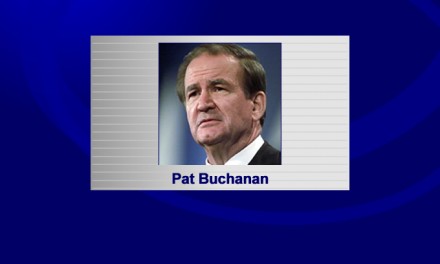President Donald Trump just rolled out his new “Black Economic Empowerment Platinum Plan.”
The plan focuses on building on his achievements since 2016 to improve the lives of black Americans by creating more opportunity to participate in a growing economy and to achieve greater security in life and property.
A poll by The Hill and HarrisX released almost a month ago, after the Republican convention, showed approval for Trump surging among blacks, to 24% — triple the 8% he got in the 2016 election.
A recent Washington Post/ABC poll and a recent Wall Street Journal/NBC News poll show the president at 9% and 5% black support, respectively.
If indeed the post-convention surge in support from blacks is eroding, it’s important to think about why it is happening.
The Census Bureau just published an annual report called “Income and Poverty in the United States: 2019.” The data shows substantial economic gains among black Americans that would very much justify strong new black support for the president.
Among the data reported is annual gains in real median income for all U.S. households, and for black households in particular, from 1967 to 2019.
The average U.S. household median income increased 6.8% from 2018 to 2019, the largest increase in history. However, the median black household income increased even more — 8%, also the largest in history.
Furthermore, as American Enterprise Institute economist Mark Perry notes, the 8% increase was “almost nine times the average annual increase of 0.90% over the last half-century.”
The report also breaks out black households by defining them as low-income, middle-income or high-income. Low-income is defined as $25,000 annual income or less, middle-income as $25,000 to $75,000 and high-income as above $75,000.
In 2019, per the Census Bureau, 29.4% of black households were high-income, compared with 9.1% in 1967. Forty-one percent of black households were categorized as middle-income in 2019, compared with 46.4% in 1967, and 28.7% were low-income in 2019, compared with 44.5% in 1967.
The defining landmark moment in 2019 was that, for the first time ever, the percentage of black households categorized as high-income, 29.4%, exceeded the percentage of black households categorized as low-income, 28.7%. The percentage of high-income black households in 2019 was over three times that of 1967.
If black support is not strengthening with news like this, and is possibly even weakening, what is a possible explanation?
One possibility is the aggressive and very well-funded disinformation campaigns the left disseminates into black communities, shutting down good news and manufacturing bad news.
I wrote a few weeks ago about a campaign initiated by my organization, the Center for Urban Renewal and Education, to disseminate into black inner cities via billboards the message that the way out of poverty is finishing school, taking any job and getting married.
As I reported, Black Lives Matter in Milwaukee immediately protested and got the billboard company, Clear Channel Outdoor, to take down the billboards.
Economist Perry examined the new Census Bureau data and checked the characteristics of high-income versus low-income families. His summary: “(I)ndividuals in high-income households are far more likely than individuals in low-income households to be well-educated, married, working full-time, and in their prime earning years. In contrast, individuals in lower-income households are far more likely … to be less-educated, working part-time … and living in single-parent or single households.”
The Census Bureau data bears out to the letter the truth about escaping poverty that my organization had posted in black neighborhoods and Black Lives Matter had dismantled.
Similarly, the economic successes achieved in black communities by the current administration are suppressed and drowned out by systematic left-wing propaganda.
Unfortunately, real progress and real answers are not enough. The good news must be aggressively communicated inside black communities. Prodigiously funded left-wing propaganda into black communities must be addressed.
Star Parker is president of the Center for Urban Renewal and Education and author of the new book “Necessary Noise: How Donald Trump Inflames the Culture War and Why This is Good News for America.” Readers can respond to Star’s column by emailing [email protected].



















Recent Comments